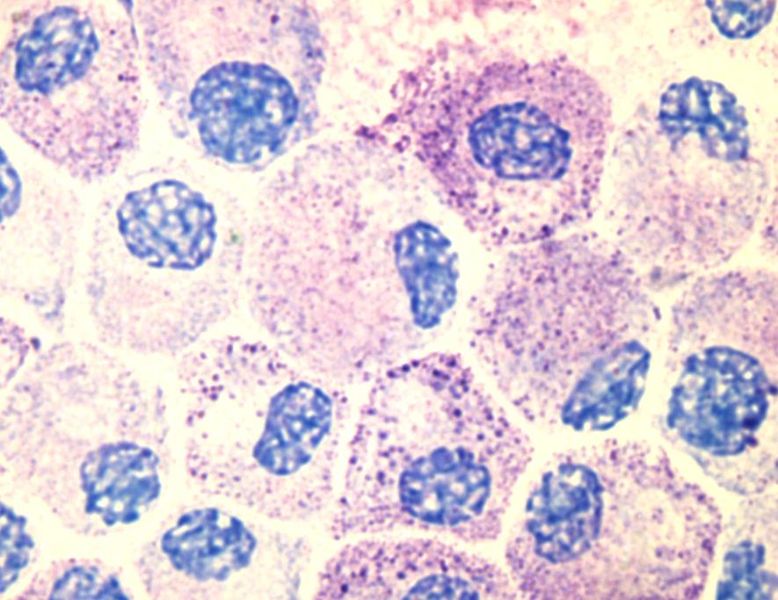A novel chemical can stop allergic responses in their tracks, according to research published in the journal Nature this week.
Allergic reactions are mediated by the immune system. When the body detects the presence of an allergen, such as pollen in hayfever, various cascades of immune chemicals are set in motion. In particular, a type of antibody called Immunoglobulin E (IgE) is released. IgE's main role in the body is to protect from infection with certain parasites, but in allergies, it's produced in response to something innocuous in what's known as a hypersensitivity reaction.
 IgE is often attached to specialised types of immune cells called Mast cells - when the IgE encounters an allergen, these cells then undergo a process called degranulation, in which they release inflammatory compounds like histamine. It's the inflammation caused by the body reacting to these chemicals that gives us the symptoms of allergies, and can lead to acute and fatal problems such as anaphylactic shock.
IgE is often attached to specialised types of immune cells called Mast cells - when the IgE encounters an allergen, these cells then undergo a process called degranulation, in which they release inflammatory compounds like histamine. It's the inflammation caused by the body reacting to these chemicals that gives us the symptoms of allergies, and can lead to acute and fatal problems such as anaphylactic shock.
Loose IgE in the bloodstream also attaches itself to mast cells, essentially priming them for a fast response the next time that allergen is detected.
The new research, from Theodore Jardetzky at Stanford University School of Medicine in California, along with colleagues in Switzerland and Germany, identifies a protein inhibitor that actively and rapidly disattaches IgE from Mast cells, helping to stop an allergic response in its tracks.
They were looking at a family of genetically engineered proteins called DARPins or Designed Ankyrin Repeat Proteins, and in particular discovered that one named E2-79 could separate IgE from it's anchor on the Mast cell, a receptor called FcR. The junction between the two is normally very stable, as it connects in two different places. Sometimes one of these connections becomes loose, but as there's a second connection, the two molecules stay bonded together.
E2-79 circumvents this by getting in between the IgE and FcR, driving a wedge between the proteins and ultimately separating them. Not only should this stop the mast cell from degranulating in seconds, drawing a halt to the inflammatory process, but by breaking the association that "primes" the mast cells, it may also slow any future allergic reaction.










Comments
Add a comment